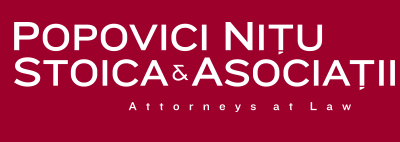- About Us
-
Expertise
- Banking & Finance
- Capital Markets
- Competition & Antitrust
- Corporate & Commercial
- Data Privacy
- Employment & Pensions
- Energy & Natural Resources
- Gambling & Betting
- Healthcare & Pharmaceuticals
- Insurance
- Intellectual Property
- International Arbitration
- Litigation
- Mergers & Acquisitions
- Project Finance/PPP, Concessions & Infrastructure
- Public Procurement
- Real Estate
- Restructuring & Insolvency
- Sports Law
- Tax
- Telecommunications, Media & Technology
- Transports & Logistics
- White Collar Compliance & Defense
- Our team
- Careers
- Publications
- News and Press
- Contact
Legal Update
Whistleblowing Q&A for Companies | Romanian Approach on Who Can ‘Whistle’ and What…
WHITE COLLAR COMPLIANCE & DEFENSE
It’s been one week since our initial article and Romania is getting closer and closer to implementing the EU Whistleblowing Directive. In order to streamline the companies’ implementation of the new requirements that are just around the corner, we are continuing our weekly series of Whistleblowing Q&A:
 EU Whistleblowing Directive: Romanian Approach on Who Can ‘whistle’ and What…
EU Whistleblowing Directive: Romanian Approach on Who Can ‘whistle’ and What…
A. Who is considered a whistleblower?
It may come as a surprise, but the definition of ‘whistleblower’ is quite extensive and covers a wide-range of persons:
- employees;
- public servants;
- shareholders;
- volunteers;
- paid or unpaid trainees;
- persons belonging to the administrative, management or supervisory body of an undertaking, including non-executive members;
- any persons working under the supervision and direction of contractors, subcontractors and suppliers;
- persons having self-employed status;
- any persons that obtain information during the recruitment process or any other precontractual negotiations or persons whose employment or contractual relationship has ceased.
This extended list has a direct impact on companies’ obligations under the new law, as they will need to make sure that reporting channels and procedures are established and/or adapted to ensure accessibility and clarity for any possible whistleblower.
When implementing a whistleblower mechanism, it needs to be taken into account that persons intending to report should be able to make an informed decision on whether, how and when to report.
B. Is anonymous reporting allowed?
Reporting persons in Romania may either choose to be known or not.
According to the Whistleblowing Directive, it is left at the sole discretion of each Member State if this protection entails an obligation to accept and follow up on an anonymous report.
It seems that Romania wanted to provide the option of anonymity to whistleblowers, while ensuring that companies have the same obligations for known whistleblowers or anonymous ones.
Based on Article 6 (2) of the Government draft law, it seems that Romania made room for investigating an anonymous report as long as it contains enough information on the reported breach of law.
C. What breaches are subject to reporting?
Romania made things really simple – EVERYTHING.
Under the Whistleblowing Directive, a whistleblower is granted protection when reporting on breaches of EU rules in certain specific areas (e.g. public procurement, financial services, anti-money laundering and counter terrorist financing, public health, protection of privacy and personal data).
Yet, the Whistleblowing Directive is leaving the door open for Member States to extend protection under national law as regards any other uncovered areas.
Said and done! In accordance with the Government draft law, whistleblower protection is extended to any breach of law (irrespective of area), any rules of conduct or professional ethics. Although this is not exactly good news for companies, it seems like the Romanian approach is in line with the future intentions of the European Commission that will consider the extension of areas when proposing legislation in areas where whistleblower protection would be relevant.
This document is intended for informational purposes only, does not represent legal advice and does not focus on particular cases.
For further information or analysis on specific matters, please contact Alexandru Ambrozie or Ana Stoenescu.










